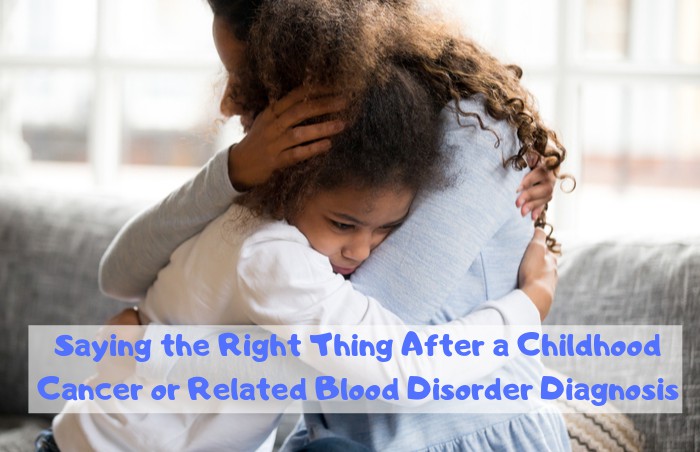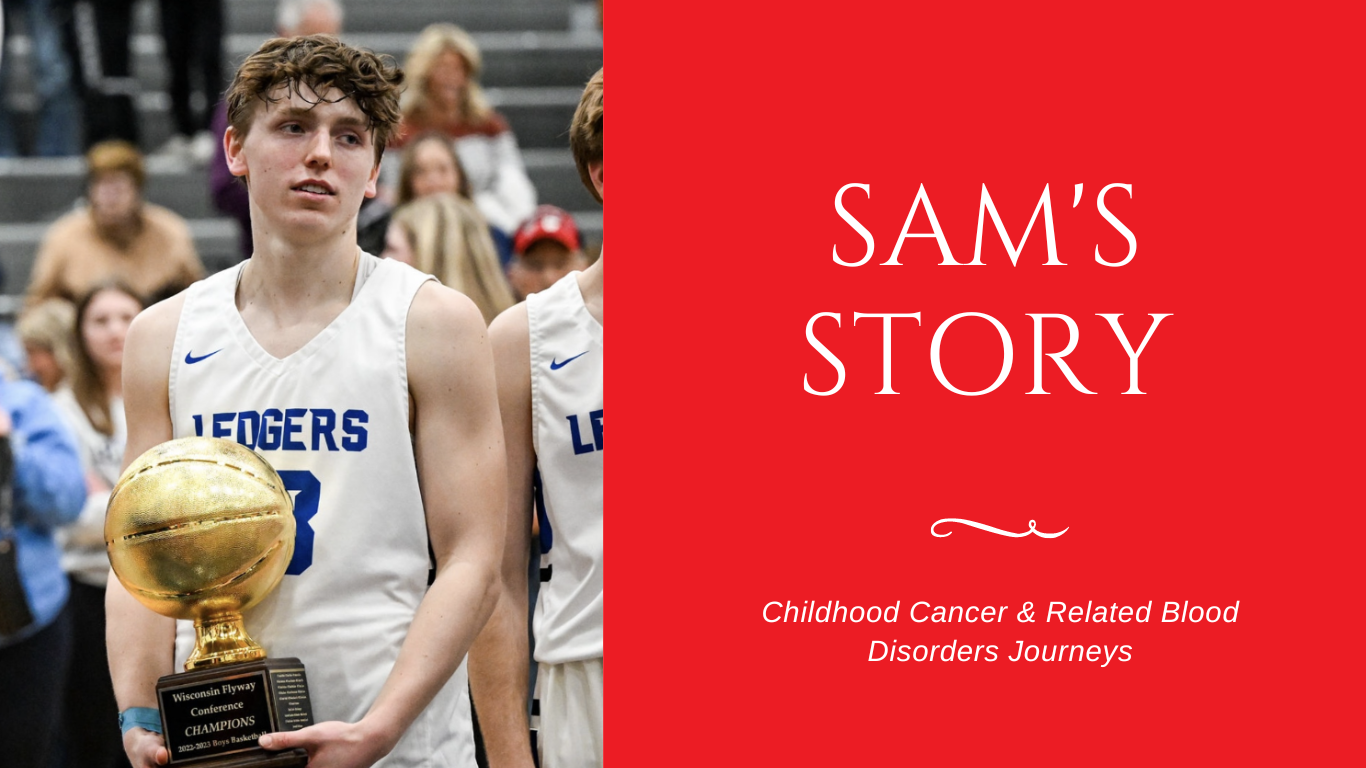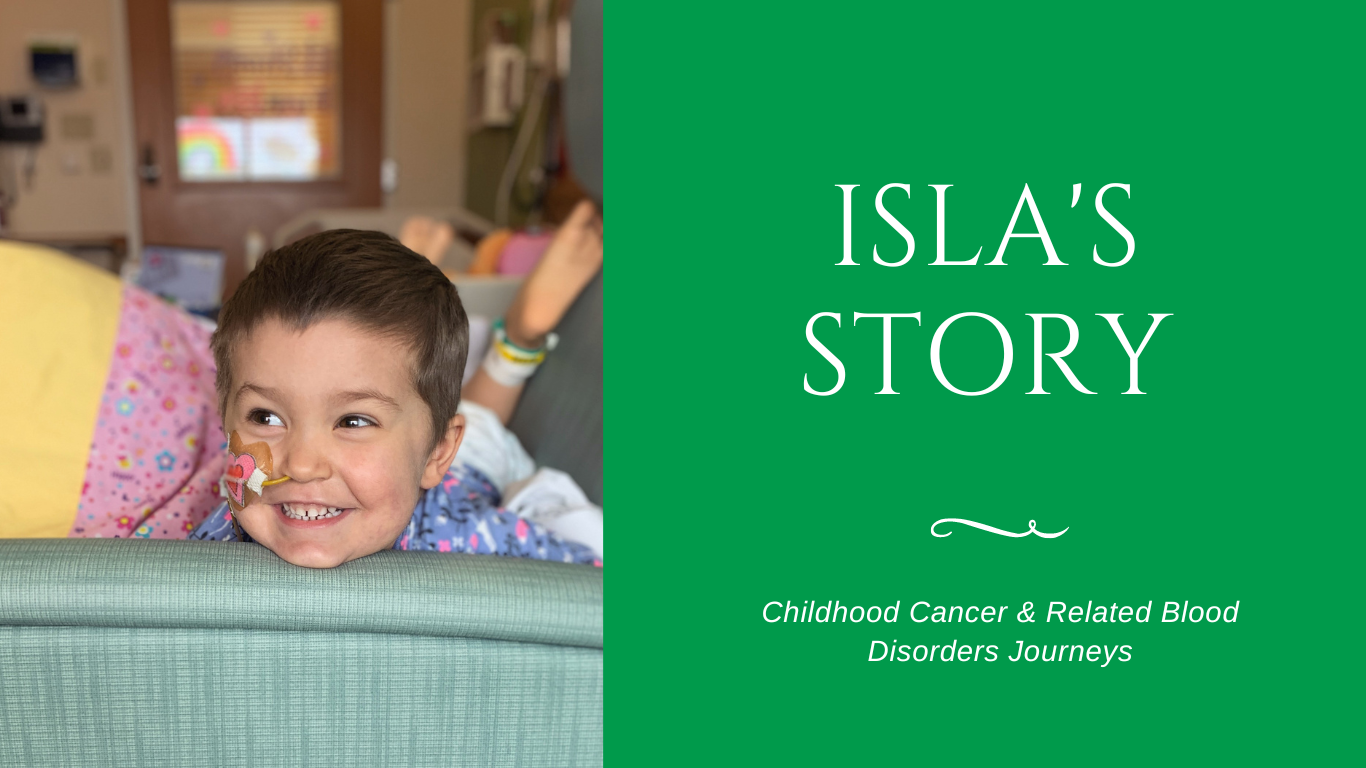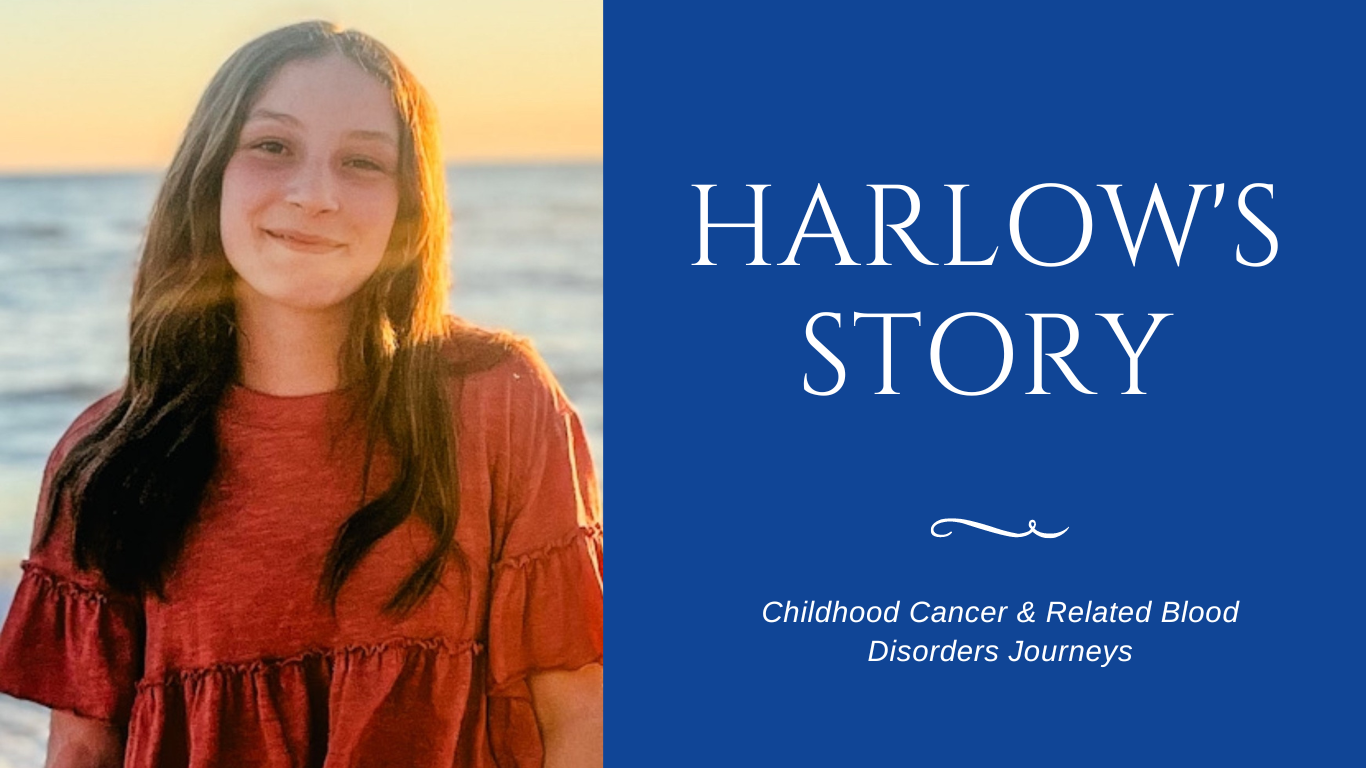
Saying the Right Thing After a Childhood Cancer or Related Blood Disorder Diagnosis
It’s hard to know what to say in a difficult situation, especially in a situation where a family is facing a cancer diagnosis for their child.
We recently asked our social media audience, “When it comes to a childhood cancer and related blood disorders diagnosis, what words would you most want to hear from family and friends? What would you not want to hear?”
While many of our commenters agreed that the best thing you can say or do is offer to help and provide support, specific help is more beneficial than general help. Making specific offers like buying groceries or car-pooling for kids is easier to manage, leaving one less thing for families to worry about. However, our audience also agreed that what they don’t want to hear is that their situation is “every parent’s worst nightmare”. A diagnosis is difficult enough to handle and pointing out the difficulty just makes the situation that much harder. All in all, well-intentioned words and actions seem to be appreciated, and you can never go wrong by reaching out a hand to help.
When it comes to what to say—and what not to say—here’s what our audience had to say:
What do you most want to hear from family and friends?
 “Best thing you can do for someone in this situation is give them gas cards or give them cards for food. Come cut their grass, shovel their snow, call them and say, “I’m running to the grocery store do you need anything?” -Helen D.
“Best thing you can do for someone in this situation is give them gas cards or give them cards for food. Come cut their grass, shovel their snow, call them and say, “I’m running to the grocery store do you need anything?” -Helen D.
“I appreciated hearing “I can’t imagine what you’re going through” or “I’m sorry” or “I’m thinking of you” or “I’m praying for you”. All these things showed support without trying to make everything better (which was impossible). I also loved the doers who said, “I’m bringing dinner” or “I’m doing a Costco run, what do you need?” -Erin D.
“Instead of saying “What can I do to help?” or “Let me know what I can do to help”, give some options of ways to help. It’s easier to say yes when there is a concrete act being offered. For example, “Can I help walk the dog?” “Can I bring you a coffee” “Can I organize a meal train?” etc. It’s hard enough to ask for help, let alone think of ways for people to help. Just one more thing to not have to think about.” -Lizzi G.
“I agree with “I can’t imagine what you’re going through.” This is so helpful because some days are good, and some are awful. Also, for me it was helpful to hear “You are in our prayers.”- Michelle O.
“The most helpful thing that was said to us was, “I know there’s nothing I can say that can take away the pain of what you’re experiencing but know that I’m here to walk it with you. I’m in your corner. I’m on your team.” -Meghan G.
“I loved hearing “I can’t imagine what you’re going through.” It carried no judgement, no assumptions, and allowed me to let my guard down. I also liked, “Here is some dinner for your family tonight.” -Michelle S.
What do you not want to hear?
“The worst thing someone could say, in my opinion, is “Everything happens for a reason.” There is absolutely ZERO reason for my child to have to go through something like cancer.” -Dayle B.
“I had a hard time when people would relate their parent/grandparent/adult cancer to MY child’s cancer. It is not the same. There is no known cause for childhood cancer, some children are even born with it. Many adult cancers result from lifestyle factors over a long period of time. And very, very little federal money goes toward find a cure for pediatric cancer.” -Erin D.
“I understand and appreciate the “I’m so sorry”, “you’re strong”, “you can do this again”, “you’re beautiful” and “I’m here for you” but what I do not appreciate is someone not keeping their word. I do not appreciate people treating me like a sick person. I’m healthy and doing well, so treat me like a normal person.” -Emily F.
“The worst thing I’ve heard is the condemnation of my smile and the fact that I don’t upload photos from the hospital because I don’t want to show my daughter’s pain. I want to show everyone that we are strong. It’s terrible to hear that my child’s pain is a punishment for my family, and this is the plan of God.” -Viktoria R.
“DO NOT say “This is every parent’s worst nightmare” to a parent whose child is beating cancer (especially not in front of the child fighting the fight). We spend enough time in the hospital to know that things can unfortunately be so much harder for some kids and their families.” -Michelle O.




